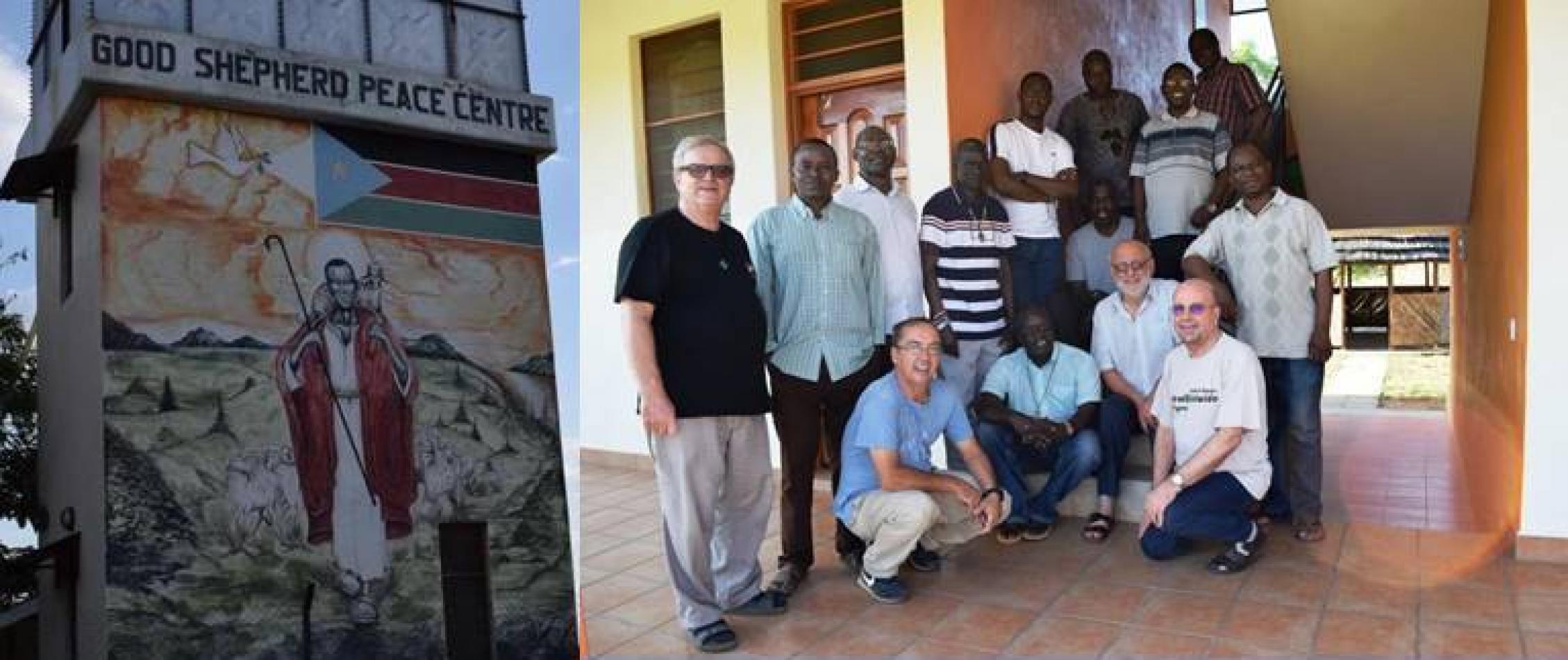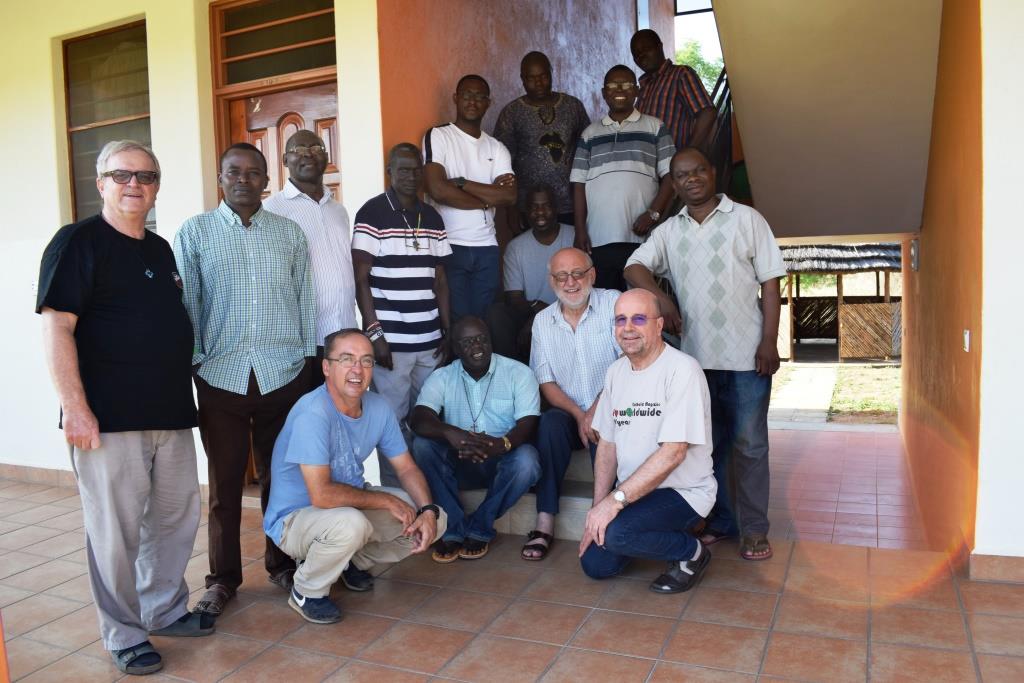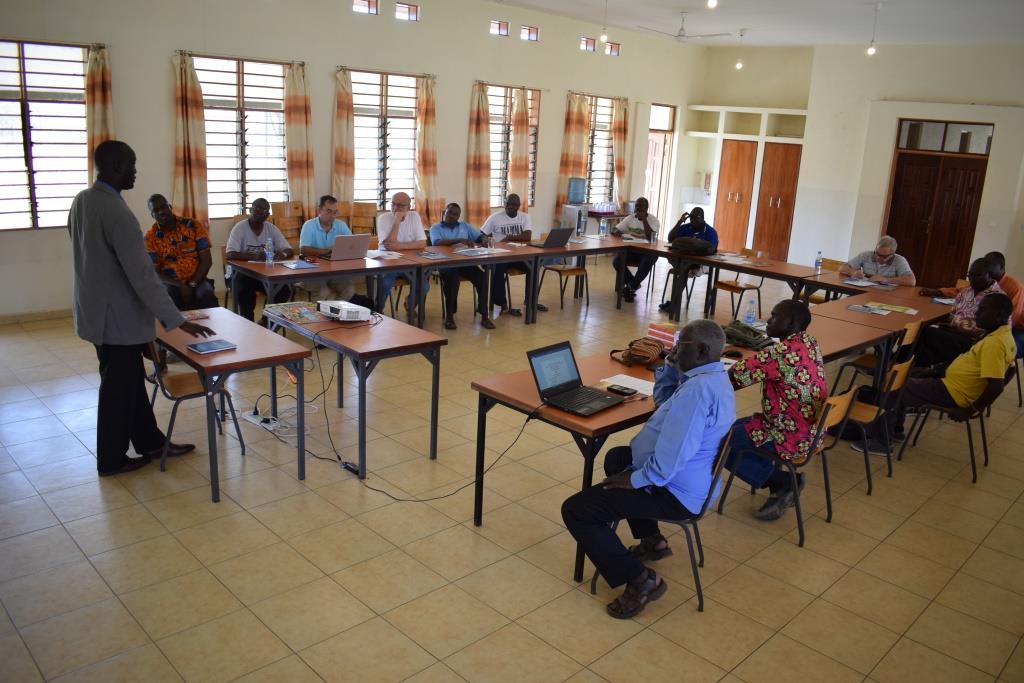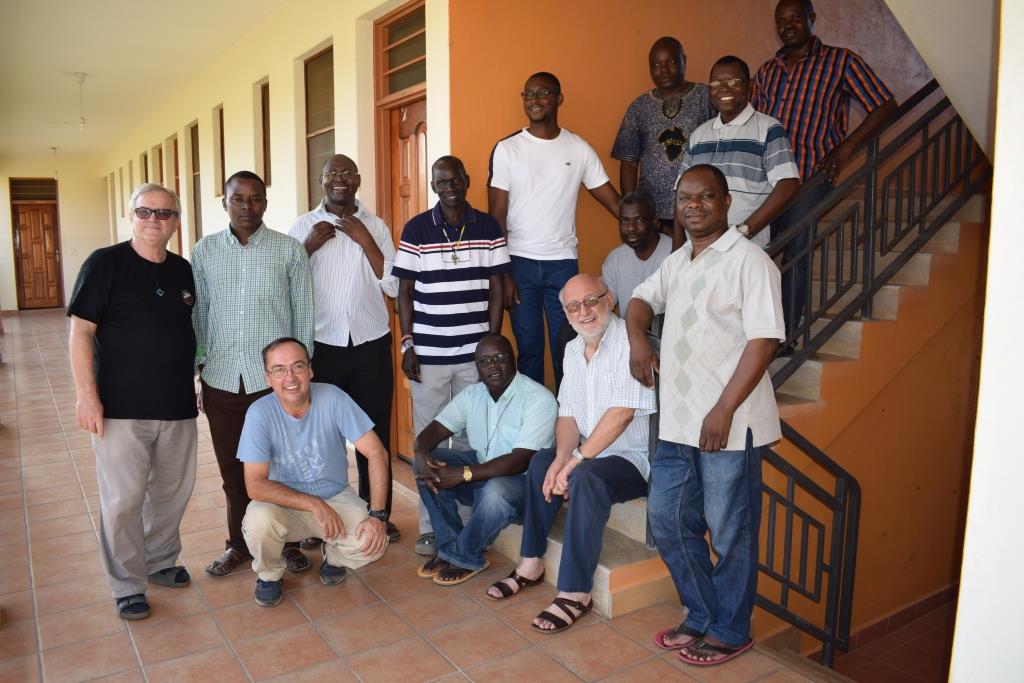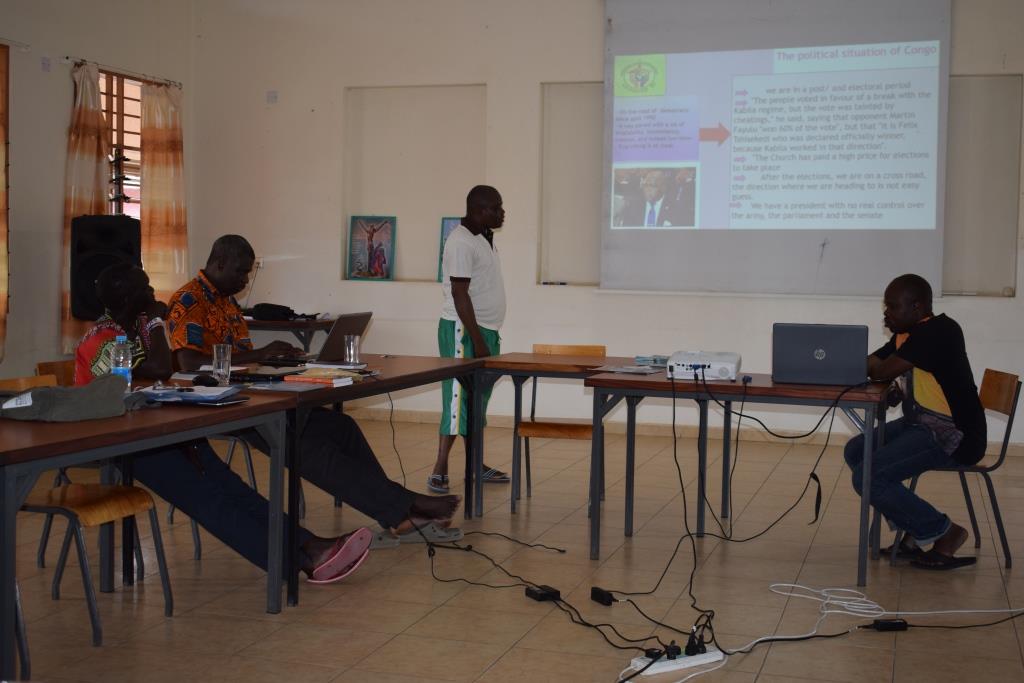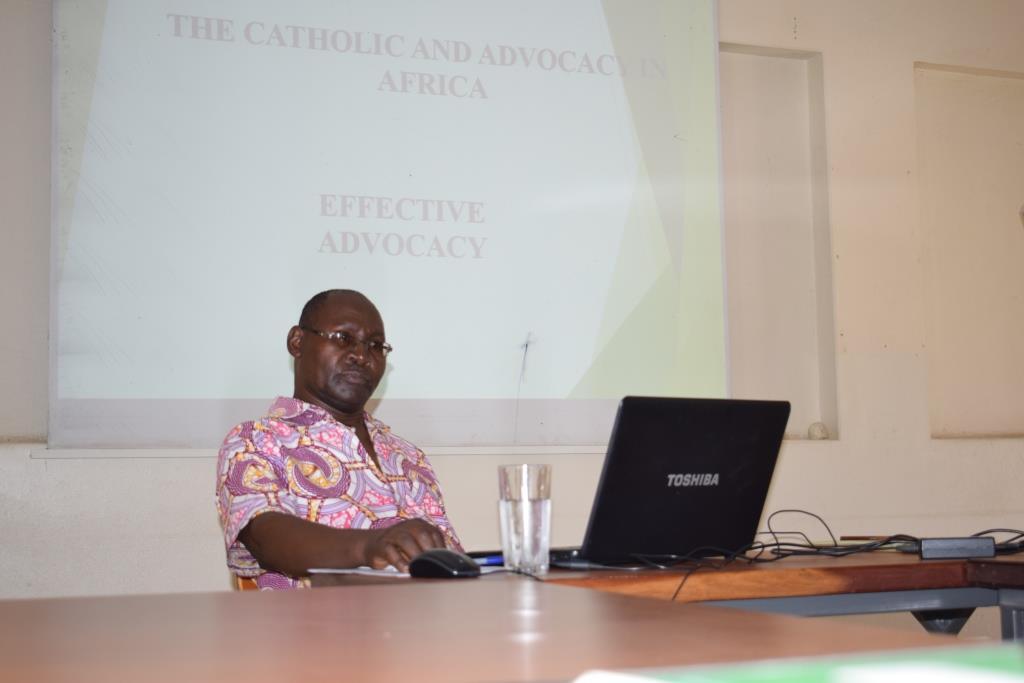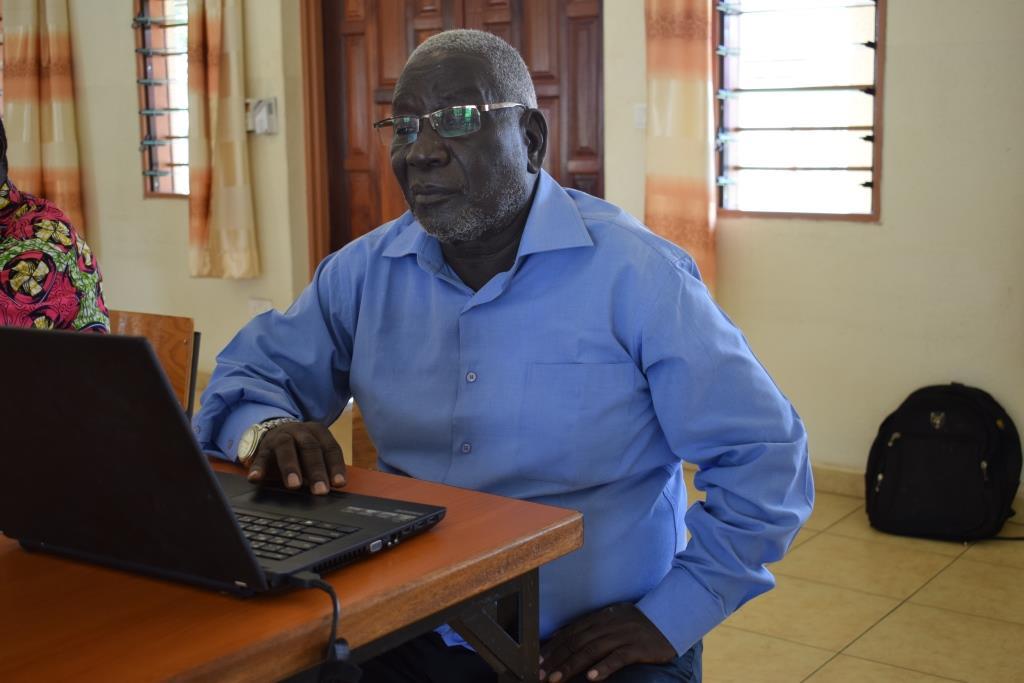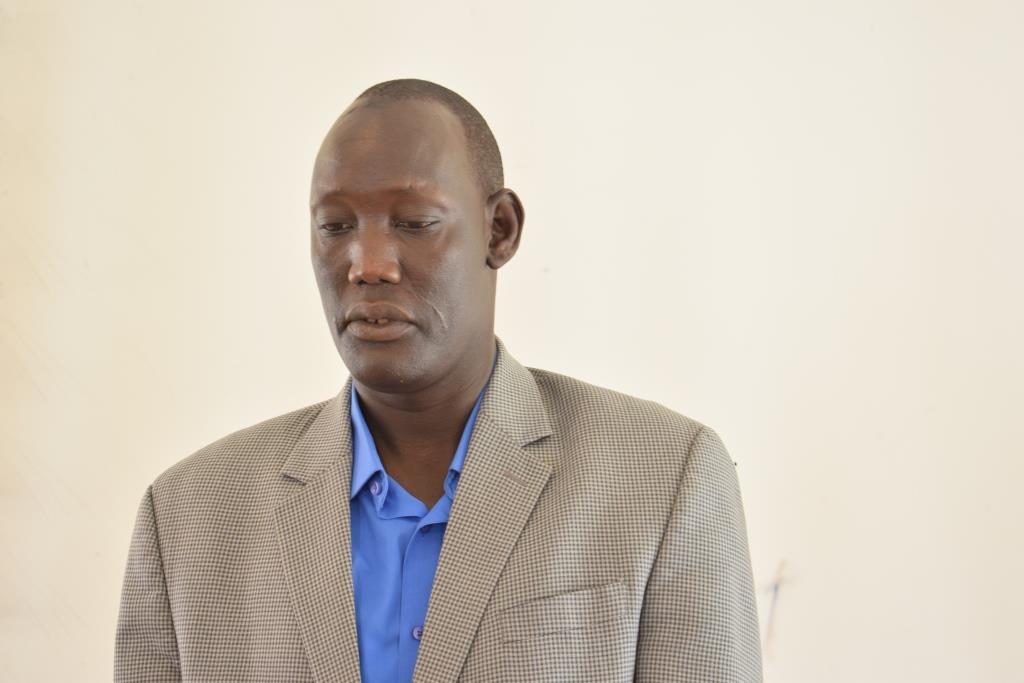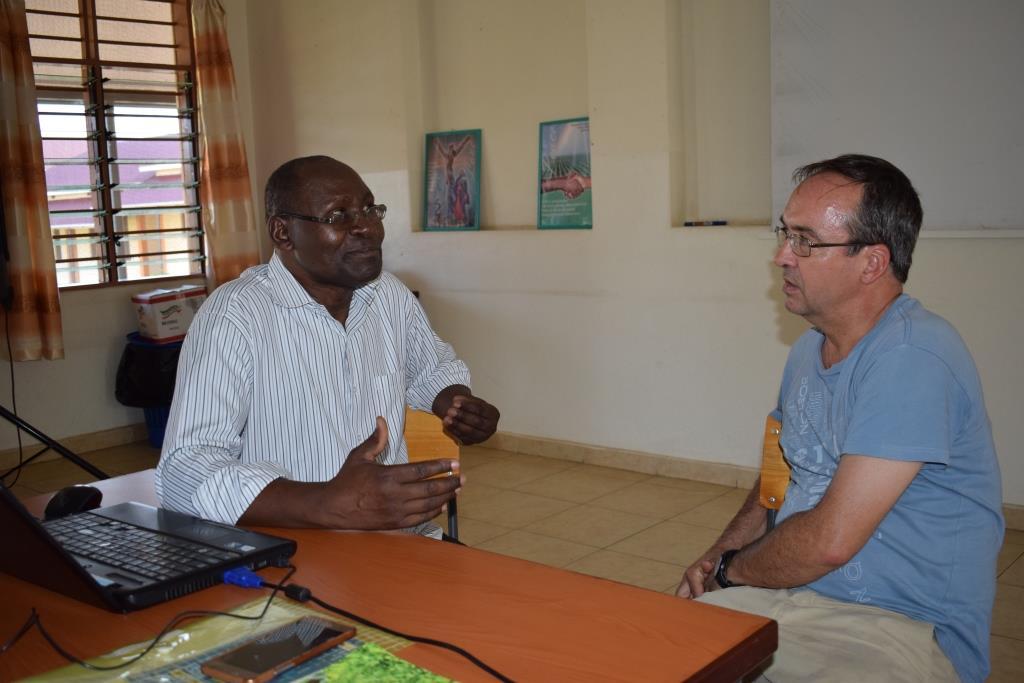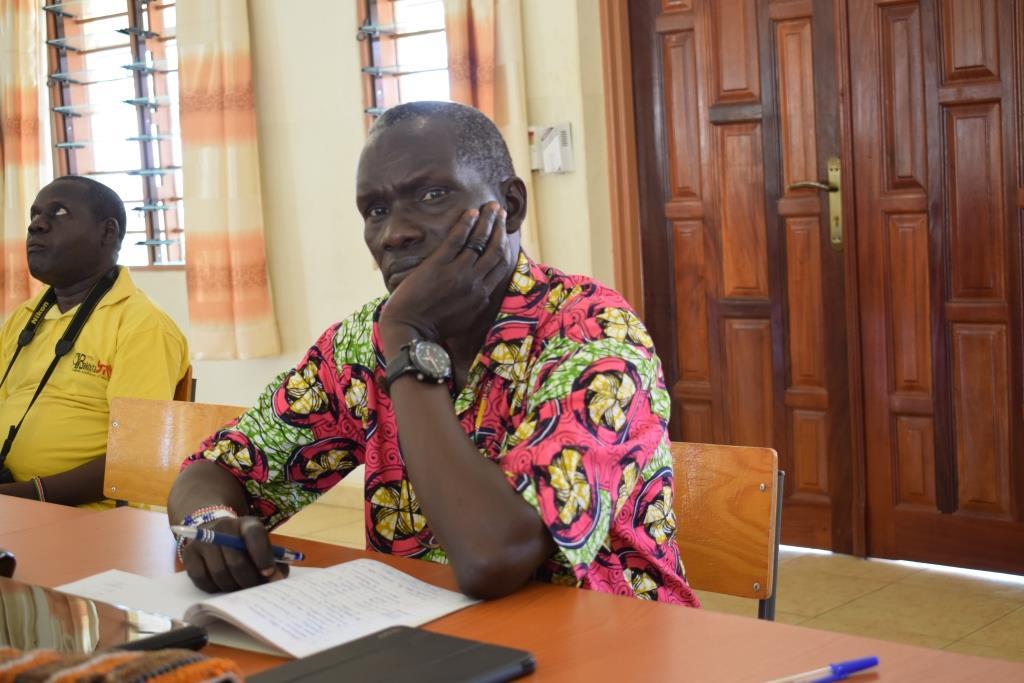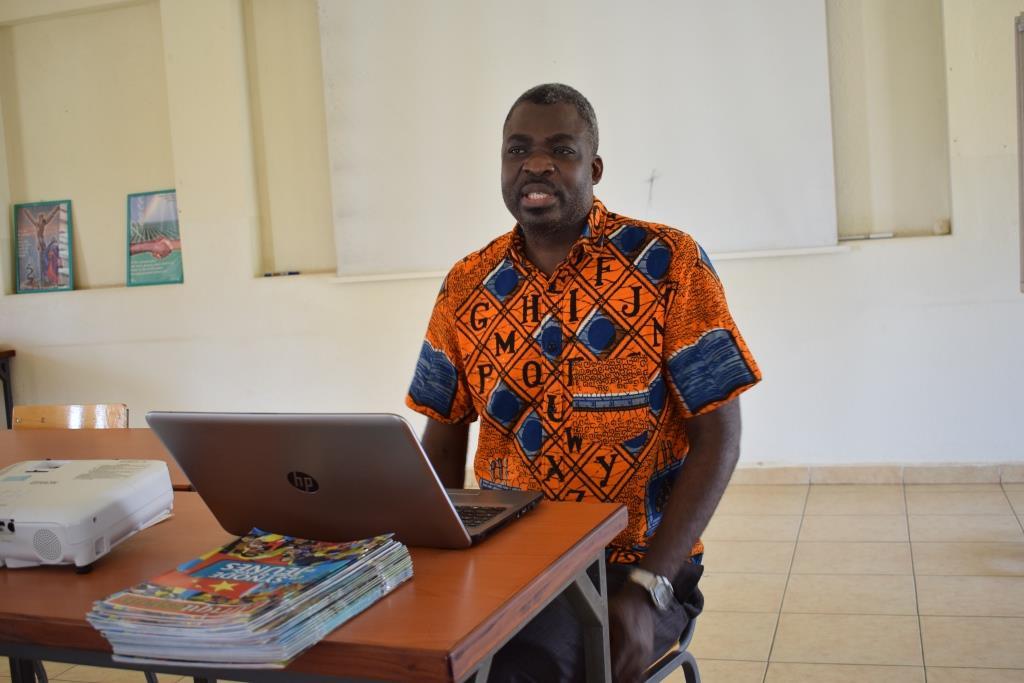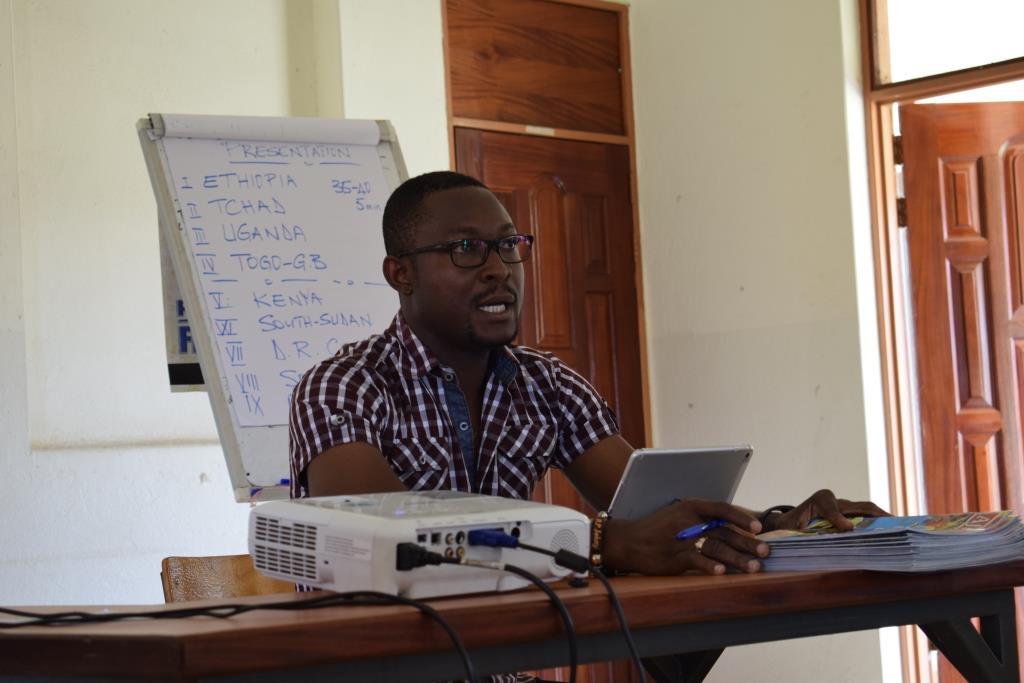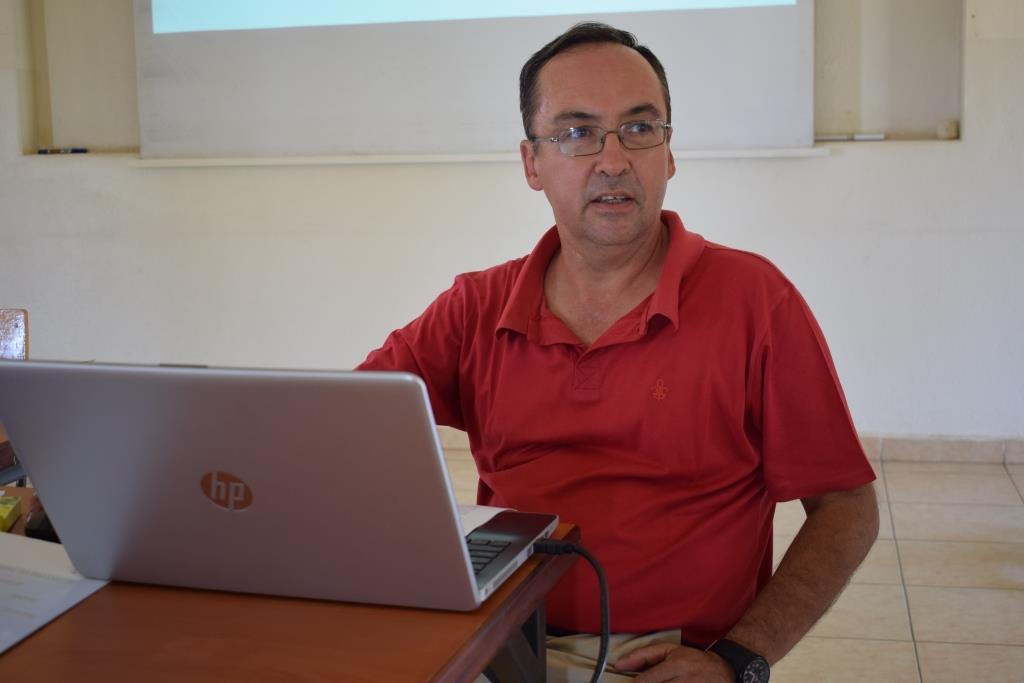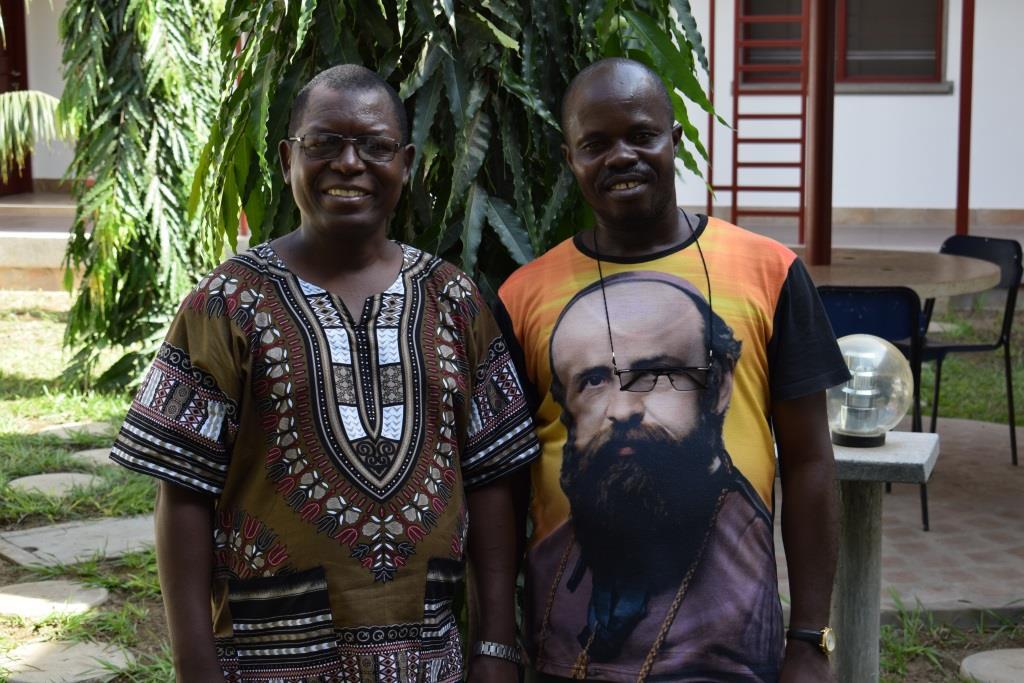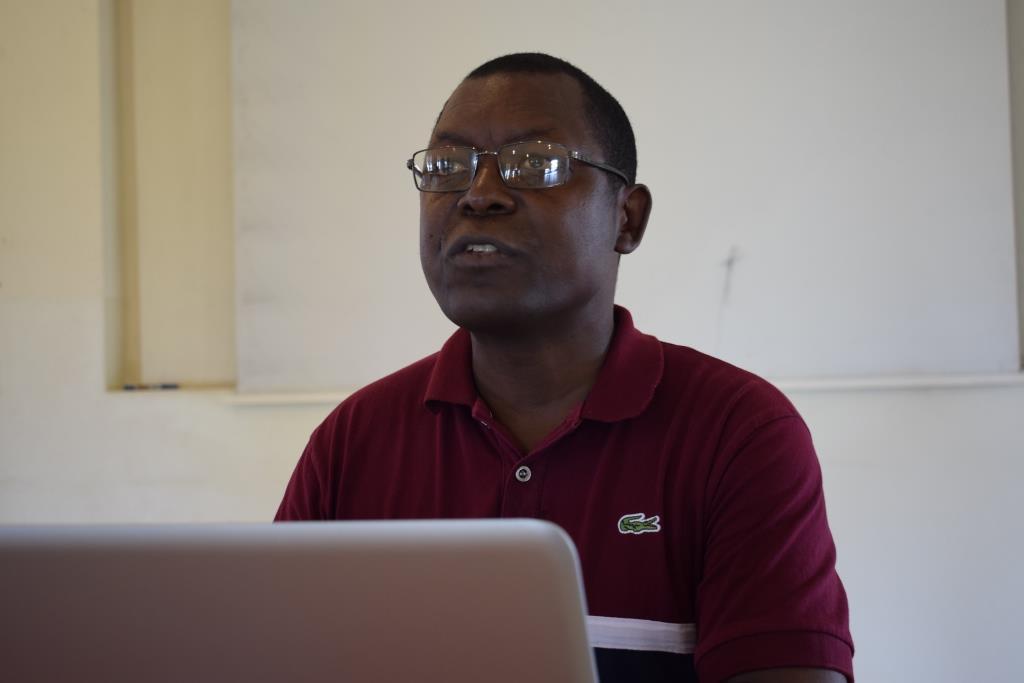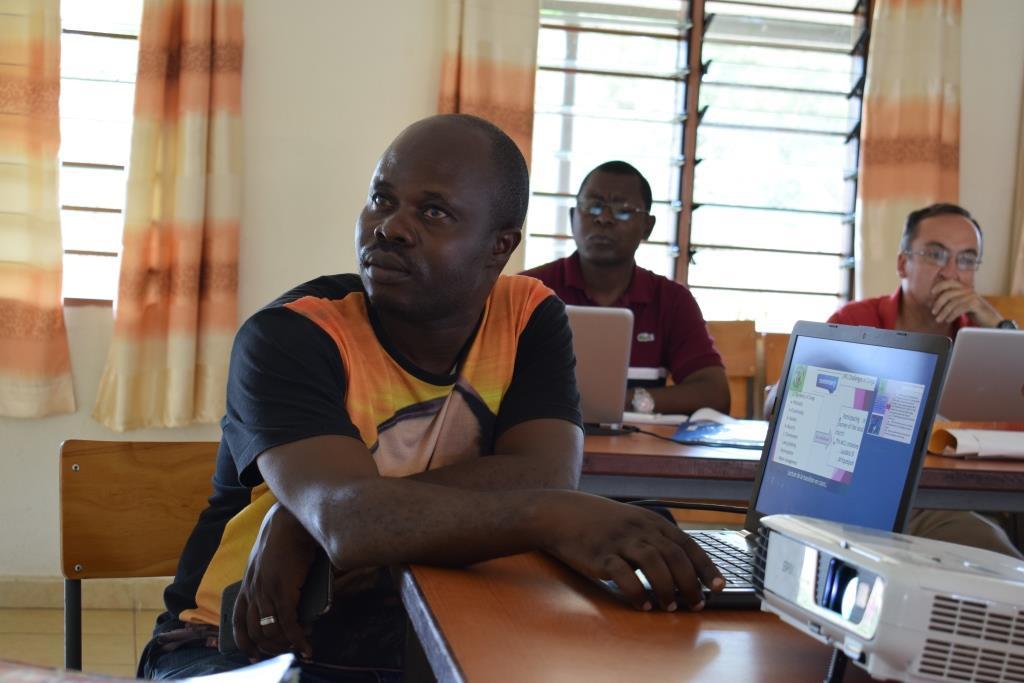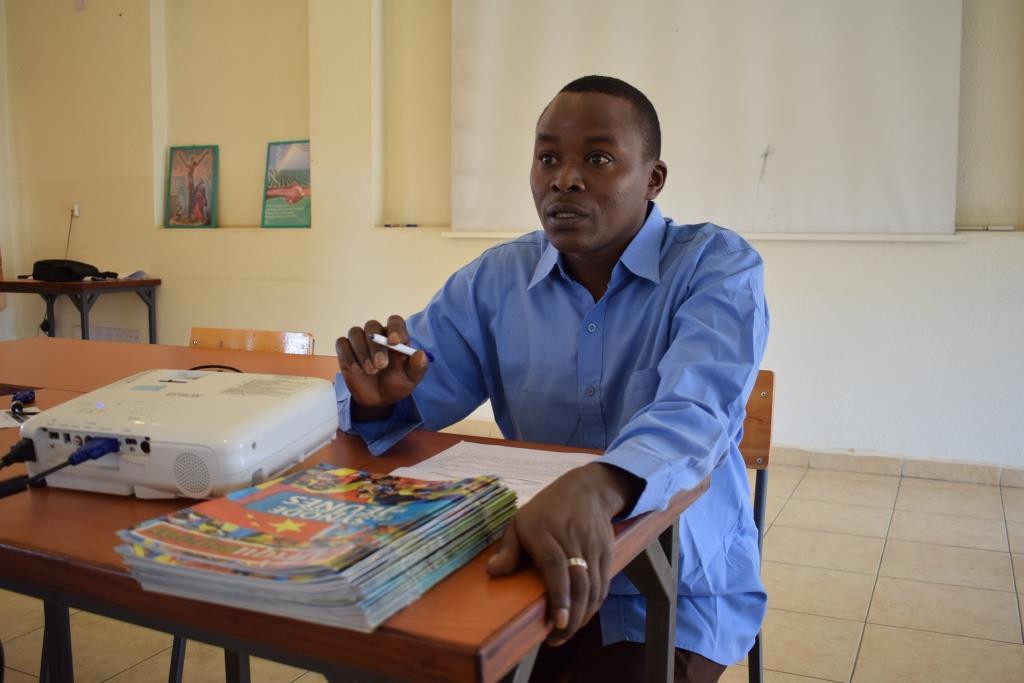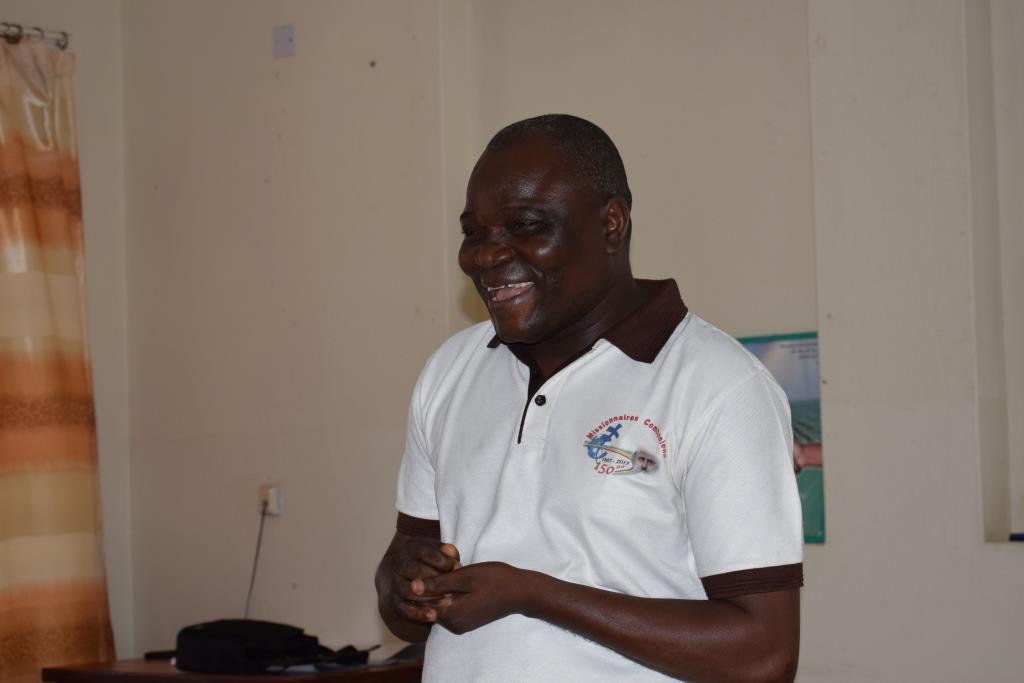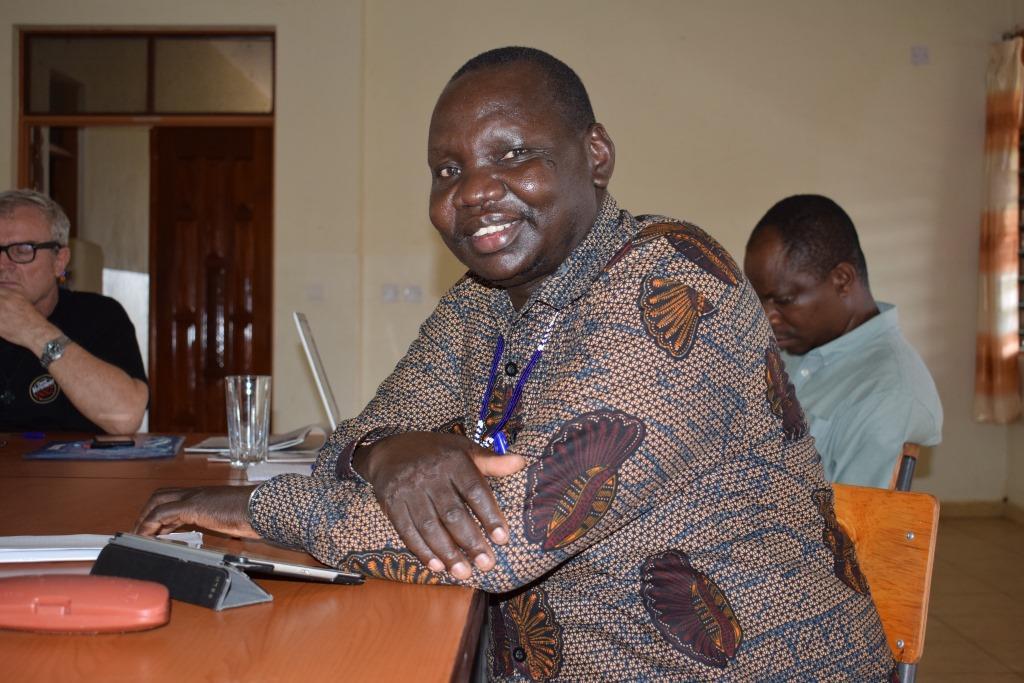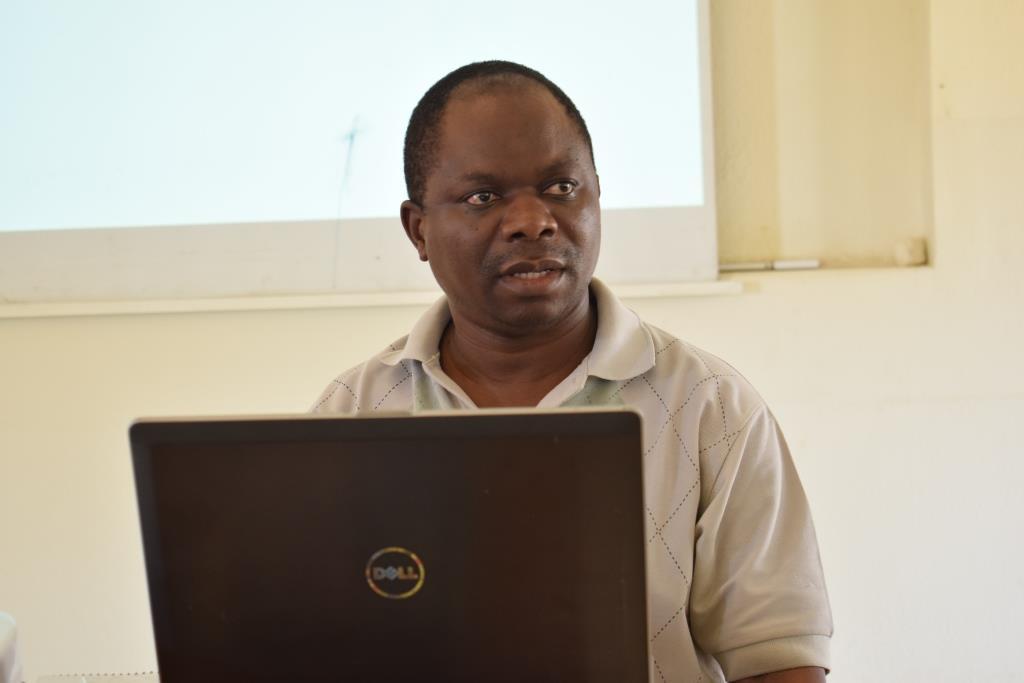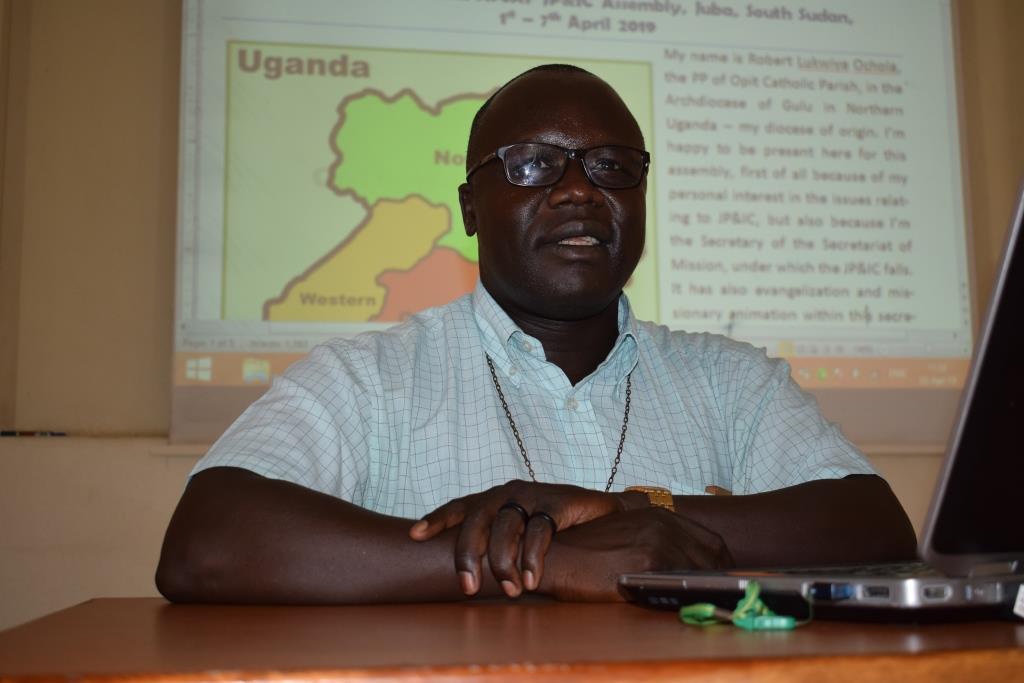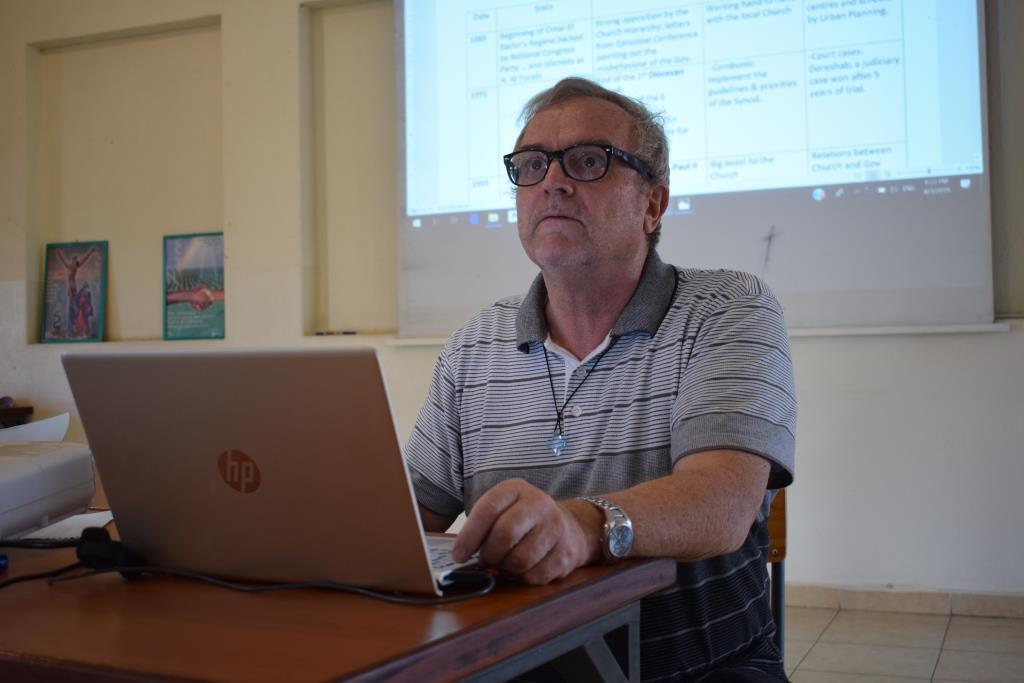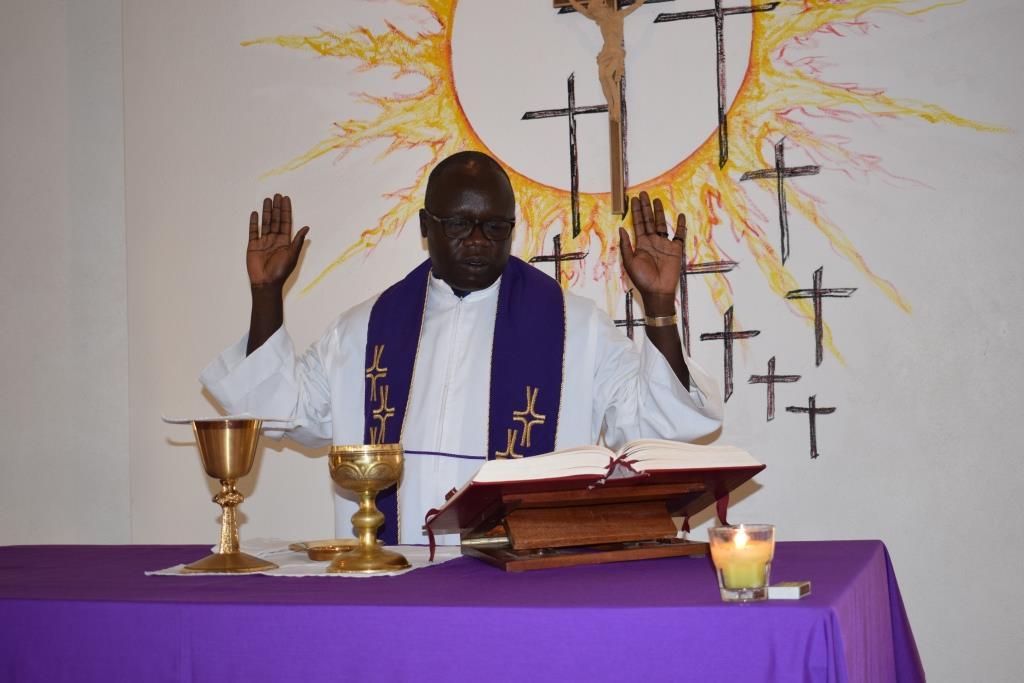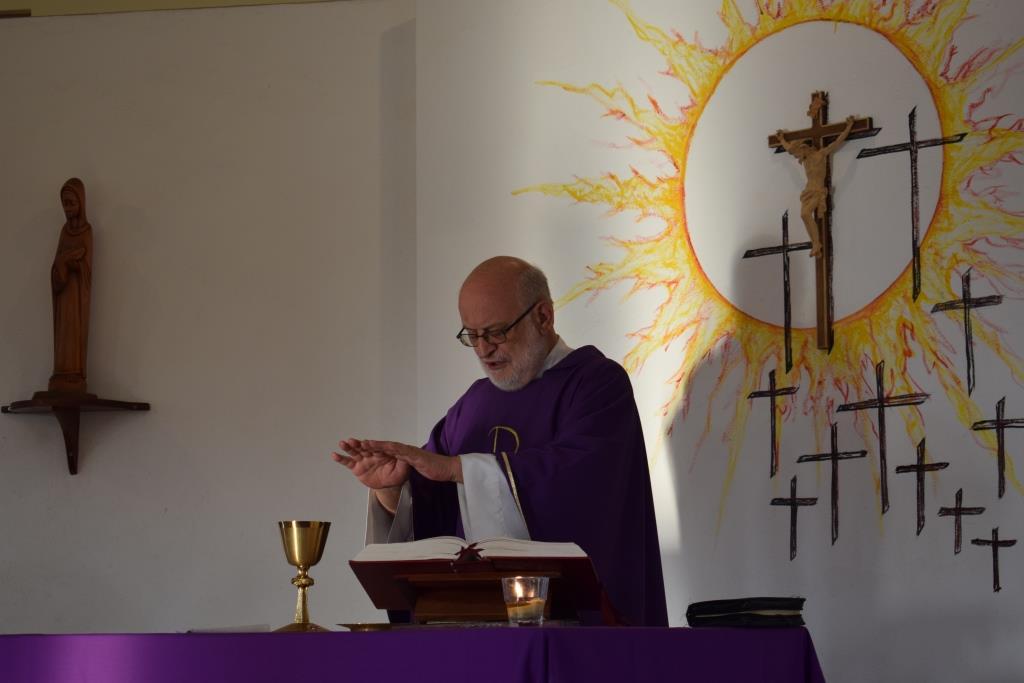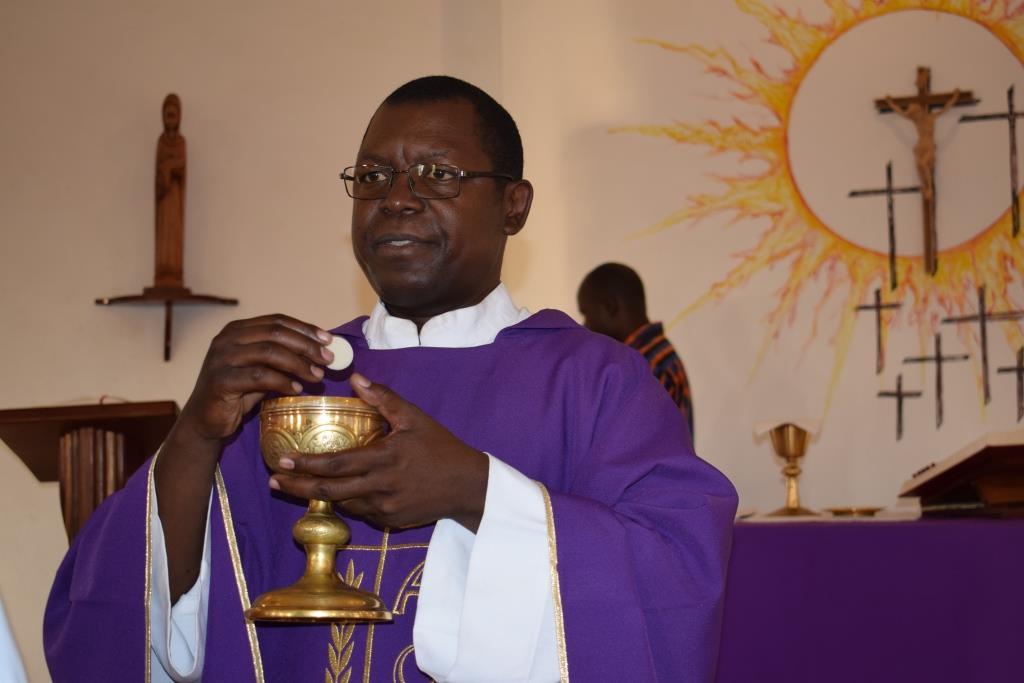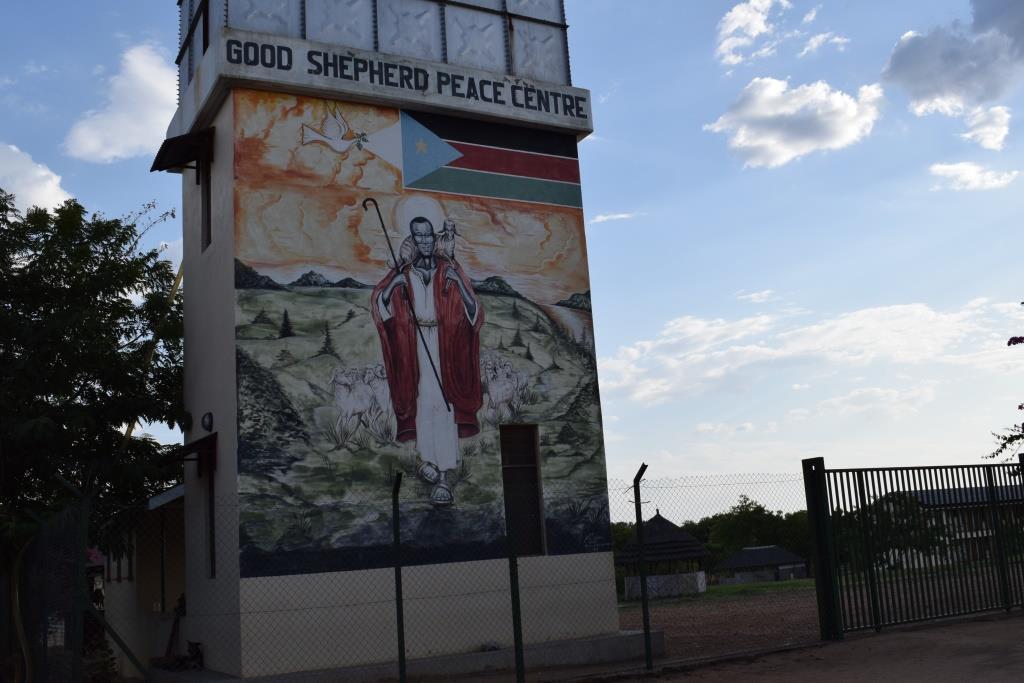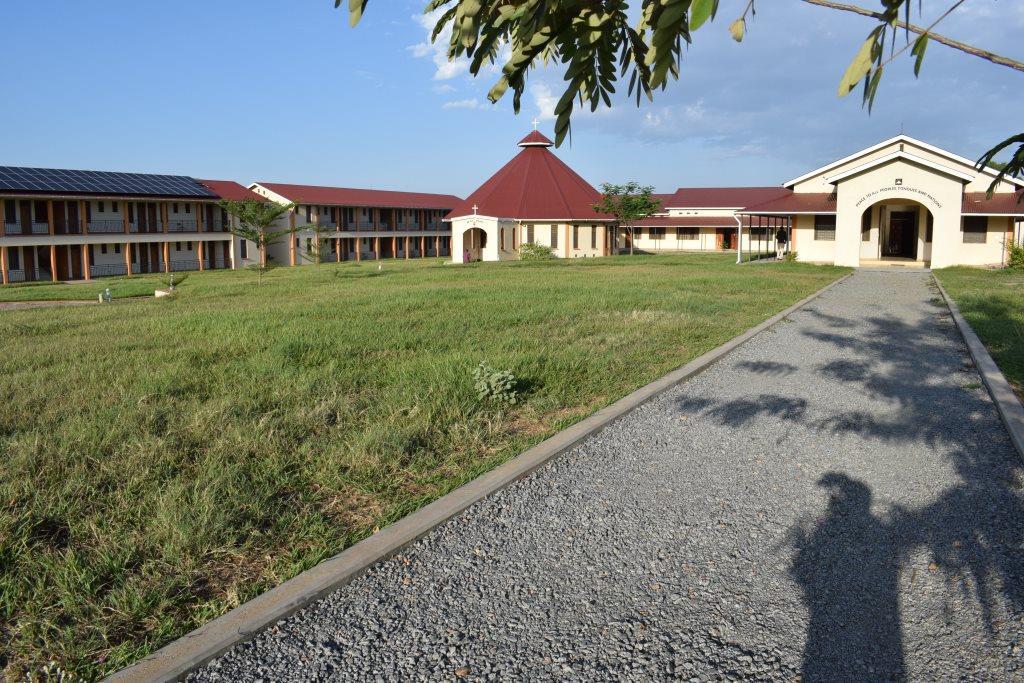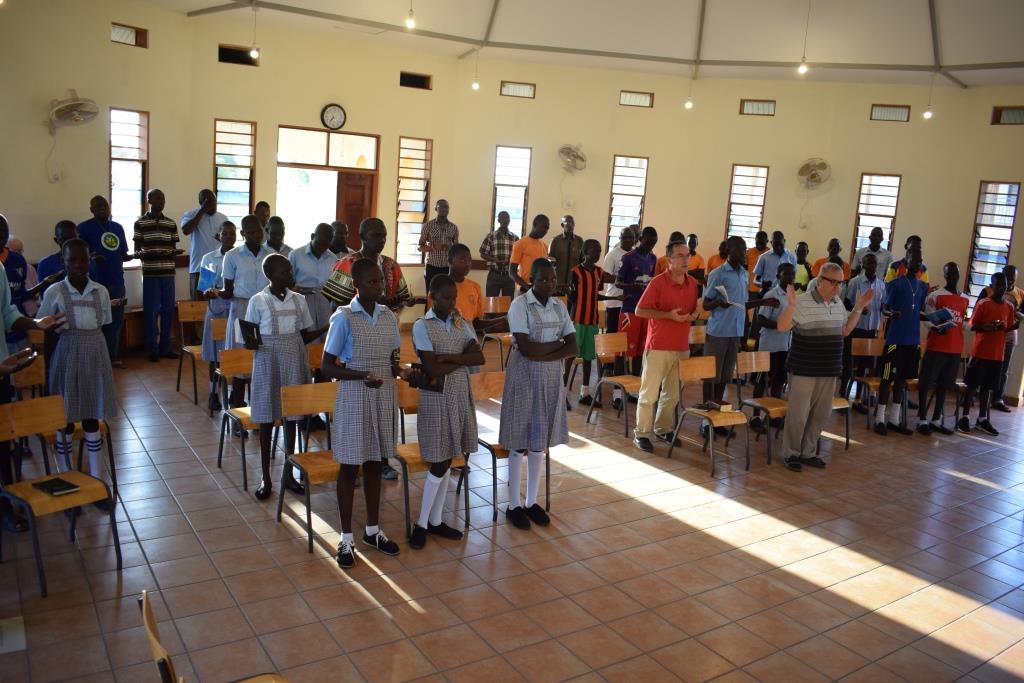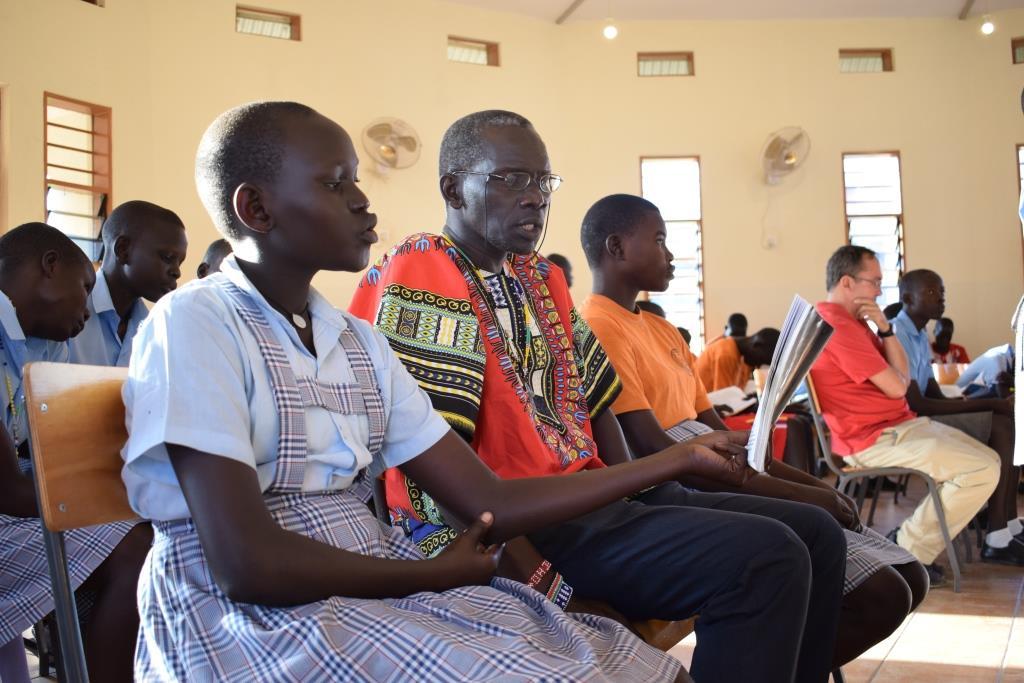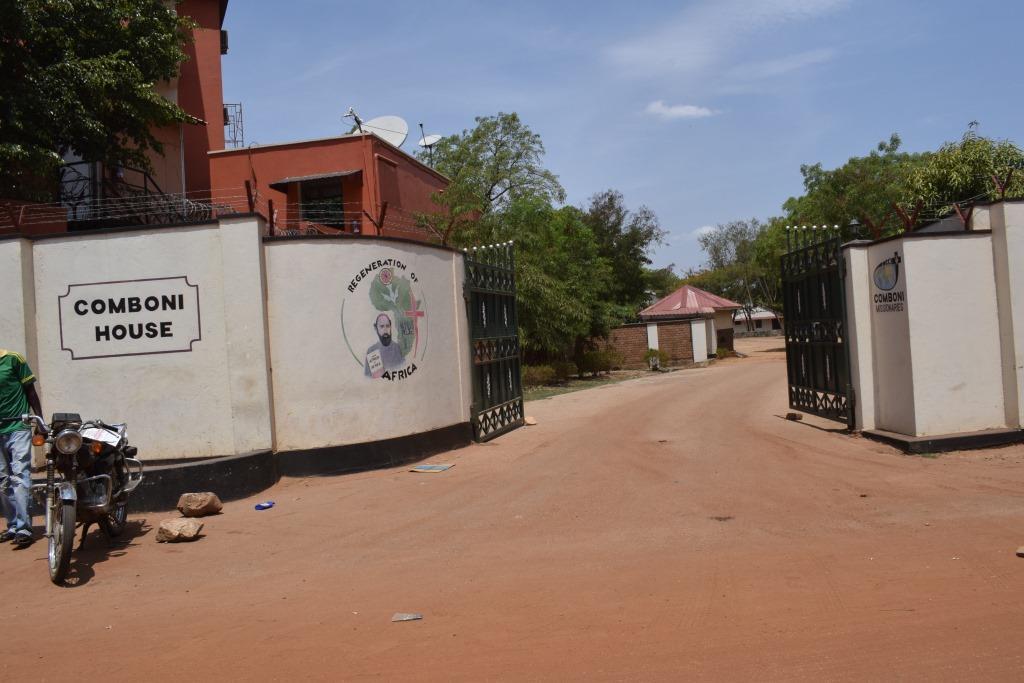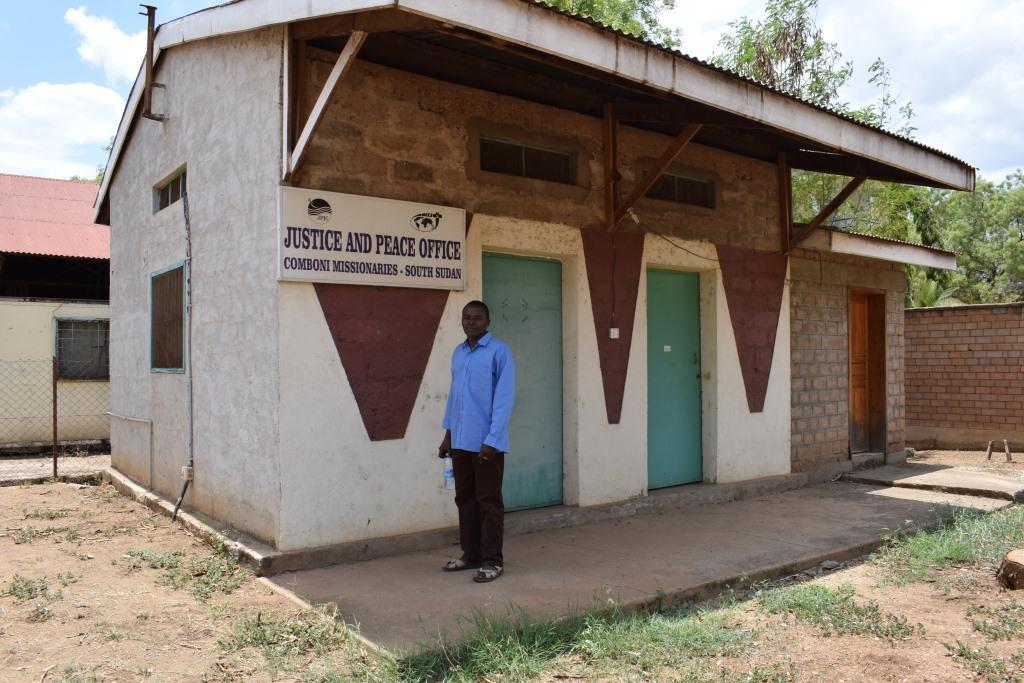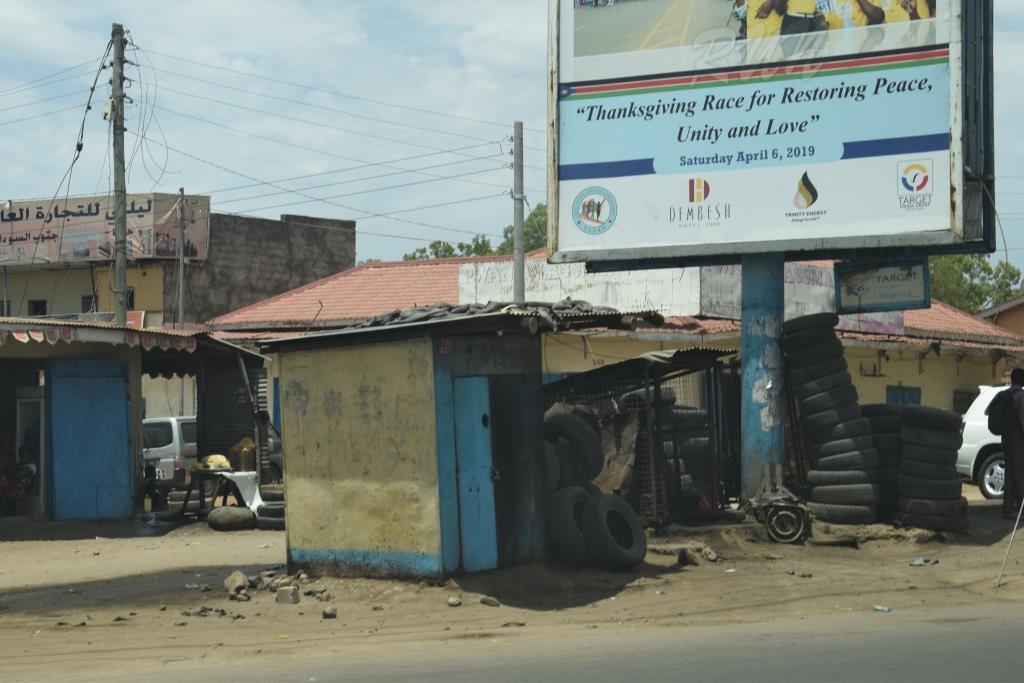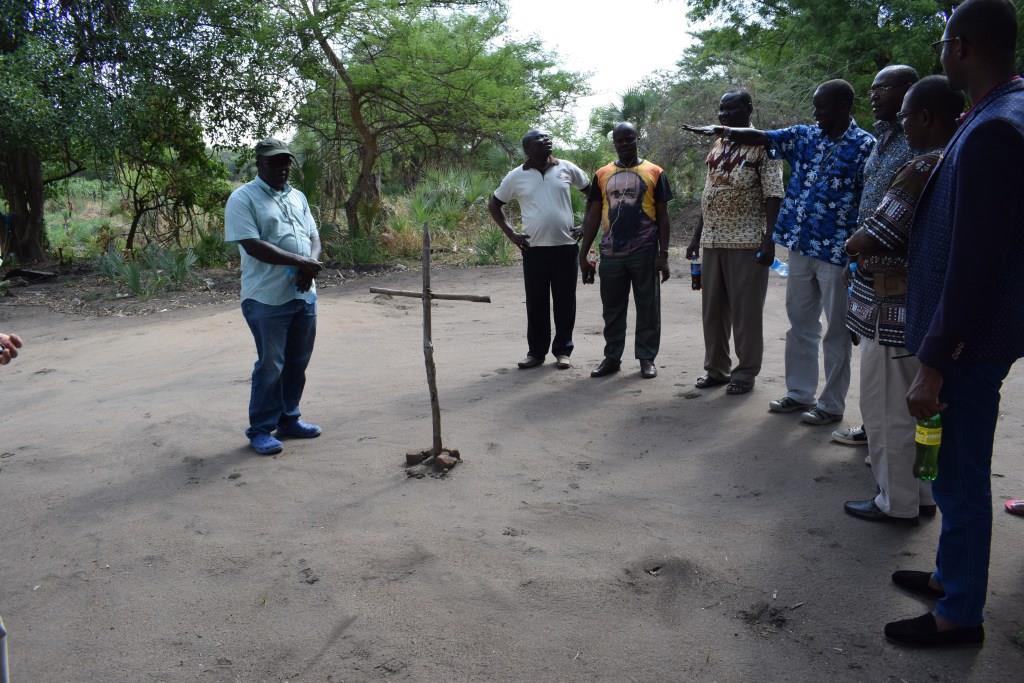Daniel Comboni
Comboni Missionaries
Institutional area
Other links
Newsletter
Tuesday, April 9, 2019
The leaders of the Justice, Peace and Integrity of Creation (JPIC) sector of the Comboni circumscriptions of English-speaking Africa (APDESAM) and French-speaking Africa (ASCAF) met in an assembly from 1 to 7 April 2019, at the Good Shepherd Centre for Peace, south-east of Juba, South Sudan, to reflect on the “Catholic response to Justice and Peace issues in an ever changing Africa). Ten of the 13 circumscriptions had sent their representatives. The Central African Republic, Eritrea and Mozambique were justifiably absent. Fr. Arlindo Pinto had come from Rome to represent the General Secretariat of the Mission. The moderator was Aloys Ojore, professor at the Tangaza University in Nairobi (Kenya).
At the end of the assembly, organised by Fr. Louis Okot, provincial superior of South Sudan and head of the APDESAM JPIC sector, in collaboration with the General Secretariat of the Mission, the missionaries wrote a message addressed to all the confreres working in Africa. The message concludes with 12 proposals for possible steps to be taken, as Comboni Missionaries, for an effective reconciliation and peace and for a greater social and environmental justice on the African continent. This message will appear on the next MCCJ Bulletin.
MESSAGE OF THE PARTICIPANTS
IN THE APDESAM AND ASCAF JPIC ASSEMBLY,
JUBA, SOUTH SUDAN
April 1–7, 2019
Dear confrères,
It is with great joy that we come to you with greetings from Juba, South Sudan, where we have met to discuss issues concerning our commitment in the field of Justice, Peace and Integrity of Creation (JPIC). A special greeting goes to our confrères present in countries that have been – and still are – put to the test by dramatic events (floods in Mozambique and Malawi, political tensions in DR Congo, dreadful consequences of a bloody civil war in South Sudan, ethnic and religious clashes in Central African Republic, generalised instability in Eritrea…), together with a brotherly embrace as a sign of our solidarity with them.
The theme of the Assembly was very solemn, if not breathtakingly challenging: “Catholic response to Justice and Peace Issues in a Changing Africa”. Many of us heard in a remote area of our brains a voice: “That’s an issue for specialists, not for you”.
That was not all. At our arrival at this first-ever assembly of JPIC Comboni Commissions, we were astonished to find an official letter from the General Administration addressed to us. The letter (which you can read in the “Acts of the Assembly” that you will receive in due time) awakened us immediately to a simple fact: we had come here to do ‘something’ that the whole Institute considers important – in fact, of paramount importance – if the General Council felt the need to tell us: “The commitment to Justice and Peace is not a marginal one in our missionary ministry”. Father General and his Council specified: “Such commitment has been strongly stressed by the last General Chapter”. Chapter Acts 2015 leaves no doubt about it: “Reconciliation, Justice, Peace and the Integrity of Creation are intrinsic elements of evangelisation” (n. 11).
No one of us ignores that this sentence has been an often-repeated refrain in missionary circles, since it was first written in the Final Document of the Synod of Bishop of 1971, titled Justice in the World. Before that Synod, various encyclicals and other documents had already dealt with the areas of what was called “Catholic social teaching”. Of them all, only Justice in the World summarised, clearly and succinctly, what the bishops were facing at that time – and we are still facing in our missionary work today. The insights the document contained, written for the first time with strong input from the perspective of those bishops who were victimised by globalised injustice, echoed many missionary experiences. The world they described was the world many elderly confreres had experienced, but could not spell out. Those bishops declared: “Even though it is not for us to elaborate a very profound analysis of the situation of the world, we have nevertheless been able to perceive the serious injustices that are building around the world of men and women a network of domination, oppression and abuses, which stifle freedom and keep the greater part of humanity from sharing in the building up of a more just and more fraternal world”. Then, all of a sudden, the real pearl appears: “Acting for justice and participating in the transformation of the world appears to us clearly as a constitutive dimension of the preaching of the Gospel, that is, of the mission of the Church for the redemption of the human race and the liberation from all oppressive situations”.
Since then, the statement has become “a tenet of the Catholic faith”: it cannot be brushed aside. The General Council itself, in its letter, feels the need to stress this point: “It should be emphasised that this commitment is a participation in the transformation of the world and in its liberation; indeed, more precisely, in the structural transformation of areas such as politics, economics, legislation and education. It is a huge task, of course, which for this reason requires a multi-level collaboration network”.
The official presence of Fr. Arlindo Pinto, the person in-charge of JPIC at the General Administration level, convinced us that we had been called by the Institute itself to gather in Juba for a ‘special’ task, not a ‘secondary’ one.
Yet, we soon realised that we are still far from what we are supposed to be and do. For instance, we were surprised to notice that some confreres “in charge” of JPIC in their respective circumscriptions were not present. And for a simple reason: they were occupied in some other tasks, honestly deemed and felt ‘more important’, and had asked a confrère to represent them.
We all were impressed by the various inputs offered during the Assembly. Some of their contents were very challenging. Fr Arlindo, in his intervention, tried very hard to win us over to this ‘unavoidable and noble cause’. It was not easy to take it all in. Some of us needed further panel beating!
There has been a certain amount of pain in us in realising how far we are still from accepting – both in our brain and in our heart – that the JPIC ministry is “intrinsic” to our missionary work. If it is intrinsic and it is not clearly present, then our evangelisation is crippled, partial, lacking. The pain trickled down our faces when we listened to the various reports from the circumscriptions. Apart from quite a few successful initiatives of social transformation (like the Institute of Social Ministry in Mission, in Nairobi; the Laudato si’ Missionary Centre for the protection of the environment in Kinshasa; the various magazines published; the Radios handled by the Comboni missionaries in Uganda), we all were forced to confess: “our JPIC commission is dormant”; “our commission died when Fr ‘x’ left”; “our commission is moribund”; “our commission is totally inactive”.
Before and after our reports, the main ‘facilitator’ and ‘in -putter’, Dr. Aloys Otieno Ojore, offered us well-balanced descriptions of the situation of some of the Nations we are working in, pointing out the various issues that must be faced by a truly committed Comboni commission of JPIC.
The obvious conclusion was forced upon us by the situation in which we found ourselves in all the countries we were representing: we must commit ourselves seriously to this “constitutive dimension of preaching the Gospel”.
The failures spelt out in our reports were due mostly, not to the fact that we do not believe in the necessity of this ministry, but that we all have many other tasks to deal with. None of us or of our confreres “in charge” of JPIC Comboni commissions have been appointed to this ministry full-time. We and they have so many other important things to do, all of them felt as “constitutive dimensions of preaching the Gospel” as JPIC itself. Yet, it is a fact that we have some commissions or secretariats that are blessed with a full-time coordinator! Are some more important than others? Where do we place JPIC in the pyramid of our priorities?
At the end of the Assembly, we feel the need to share with you our conviction that something must be done about it. We are aware that the appointment of a full-time coordinator of JPIC needs a lot of encouragement from us all. Yet, all of us believe that JPIC must be a ‘very high’ priority in the missionary activities undertaken by each of our circumscriptions. We should act accordingly.
One final point we want to underline: JPIC stands also for a specific “missionary spirituality”, which shares much with prophetism. Such spirituality should never fade away in us and in our evangelising mission, neither should we devolve our social responsibility and our call to social transformation entirely to the local Church. The prophetic voice of St. Daniel Comboni should find echo in our voice in all the situations in which we are engaged today. The Founder’s “unfailing loyalty to and love for the Church were rooted in his missionary charism” (RL 11). Such loyalty, however, should always be paralleled by our “untiring effort to move the conscience of the Pastors of the Church concerning their missionary responsibility so that Africa’s hour might not pass in vain” (ib.). Both attitudes are essential to our charism.
We have gathered in a booklet all the inputs, discussions, sharing, suggestions, and proposals we made during the assembly. Even by just glancing through them, no doubt, you will end up feeling what we felt during the six days we spent together, that is, we must be serious about Justice and Peace and Integrity of Creation.
WE TRY TO SPELL OUT SOME STEPS OF A POSSIBLE ‘WAY FORWARD’
1. We strongly encourage the Formation Houses (scholasticates and IBCs) to make good use of the JPIC materials produced by the General Secretariats of Mission and Formation. There will be topics to be used during their period of formation.
2. We encourage them to link up with Catholic parliamentarians in their respective countries or councillors or people´s representatives at county and regional levels with the aim of gaining grounds for lobbying and advocacy on issues of JPIC in the law making process. Kenya has already such an initiative and is proving a handy tool. In DR Congo there are chaplains in the Parliament and they could as well go beyond the minimum and use their presence to champion issues of common good.
3. We encourage Networking and Collaboration: MCCJ JPIC commissioners need to link up with JP organs in bishops’ regional conferences, such as SECAM and AMECEA, so that they make themselves heard in matters of national interest: elections , situations of conflict or suffering, Lenten campaigns, etc., collaboration with parish and diocesan offices, as well as with other institutes that belong to VIVAT and AEFJN, including the Comboni family.
If one wishes to take an issue(s) to the UN/EU, there are two possibilities:
a) Contact directly such offices – Clear and full identification of who is sending the information must be given. Specify in your communication the level of confidentiality of the information given.
b) Via the Mccj contact person: jpic_mccj@comboni.org
In both cases, precise information is a prerequisite – who, where, what, when, why – photos and video clips are an added benefit. Confidentiality is paramount too.
4. Making use of legal channels wherever possible, especially in cases of violation. Each Provincial JPIC commission should make an effort to identify and liaise with some organisations that offer legal services pro bono.
5. The circumscriptions as protagonists of Justice and Peace should as a matter of urgency, review and re-examine and indeed rectify the working conditions of their employees, salaries and ensure that their rights are not infringed upon.
6. We request the Provincials of the APDESAM and ASCAF to facilitate continuation of these assemblies with a regular frequency. The assembly is of the opinion that it would be appropriate to hold the meeting once every two years. DR Congo or TGB are proposed as the next possible hosting provinces.
7. Former vibrant initiatives that have gone underground (such as Kutoka Network in the Nairobi slums) should be revived. Likewise, strengthening of the existing initiatives is equally encouraged.
8. The assembly feels the need and thus requests the circumscriptions to ensure there is a yearly budget for JPIC activities.
9. The circumscriptions are called upon to explore possibilities of coming up with Centres dedicated to furthering JPIC agenda such as the case of John Paul II Justice and Peace Centre in Uganda and the Laudato si in DR Congo.
10. To train and form personnel in JPIC to ensure credibility in their ministry. While we appreciate the existence of other places of formation, we propose Tangaza University College as a place we could take advantage of.
11. Every circumscription should revisit the Directory/Statutes of the Mission secretariat and see to it that the language used therein features and captures the ministry of JPIC.
12. To encourage the formation of Justice and Peace Commissions in every parish or mission we are in as well as JPIC clubs in our schools and colleges.
Letter from the General Council addressed to the Participants
Dear confrères in charge of Justice and Peace and Integrity of Creation of the Circumscriptions of Africa,
May the joy of the Gospel fill your hearts and may you share this joy with our brothers and sisters, especially with the poorest and most marginalised of them.
You are meeting in Juba, South Sudan, for the JPIC Assembly during which you will study, discuss and share your views on the “Catholic response to Justice and Peace issues in an ever changing Africa”. Your assembly will be held in South Sudan, a place dear to our Comboni memory but, at the same time, a territory devastated by a persistent civil war and wounded by crimes against human rights. With South Sudan we would also like to remember the Congo and the Central African Republic, where violence seems unstoppable and of where the poorest and the defenceless are the primary victims.
The Chapter of 2015 reminds us that “reconciliation, justice, peace and the integrity of creation (are) intrinsic elements of evangelisation” (no. 11). Indeed, reconciliation is, among the dimensions of our missionary ministry, one of the most important: finding paths of healing for the victims and perpetrators, committing ourselves to justice, establishing relationships based on trust become essential elements in our commitment to proclaiming the Gospel of justice, peace and mercy. The missionary proclamation of Jesus who, in the synagogue of Nazareth, echoes the words of the prophet Isaiah, is also our own: “The Spirit of the Lord is upon me... to proclaim the year of grace of the Lord.” (Lk. 4:18-19).
The Chapter also emphasises that commitment to JPIC is a real ministry to which some confreres must devote themselves completely and professionally. A missionary presence among marginalised and frontier peoples must have personnel qualified in terms of methodology and know-how. (no. 45.2).
The year 2020 will be dedicated, in our Institute, to ministeriality. The General Council is thinking, with the General Secretariat of the Mission, of organising various events but also of preparing, with the Comboni Family, a Forum on Social Ministeriality. Such an idea, born in the World Social Forum in Salvador Bahia (Brazil) in 2018, arose from the need to develop common criteria and guidelines in the field of social ministry for the Comboni Family.
Let us also mention the encyclical Laudato Si’ by Pope Francis whose ideas should guide our work of JPIC. The Pope proposes the idea of an integral ecology where “everything is closely interrelated, and today’s problems call for a vision capable of taking into account every aspect of the global crisis” (no. 137); the environmental, economic, social and cultural dimensions are intrinsically connected: “the intimate relationship between the poor and the fragility of the planet – writes the Pope – the conviction that everything in the world is intimately connected” (no. 16). Therefore, a work of justice and peace is not possible without a commitment to the protection of creation, just as it is unthinkable to work for the safeguard of creation without facing the many social and economic injustices, nourished by a mentality of profit and exclusion.
Finally, we would like to invite you to create networks of collaboration among ourselves, the local Church, Religious Institutes and civil society. You know that our Institute is part of the Africa-Europe Faith and Justice Network (AEFJN) - an organisation that promotes economic justice between the European Union and Sub-Saharan Africa with VIVAT, which supports human rights efforts through advocacy work at the United Nations. We would like JPIC representatives from African circumscriptions to work with these organisations through antennas, or groups that engage in JPIC already present in your countries, or by promoting their establishment. The work of JPIC becomes an instrument of change the more it is based on collaborative networks.
In concluding this letter, we would like to thank you for your work and commitment, which have often been carried out in difficult situations of insecurity and serious injustice. Many thanks on behalf of the Institute.
May the Lord of life and peace give you strength and courage in your missionary service.
Fraternally,
The General Council and the General Secretariat of the Mission
Rome, 25 March 2019
Feast of the Annunciation of the Lord
Input of the General Secretariat of the Mission
Justice and Peace and Integrity of Creation
Juba April 2019
The commitment to JPIC, it is good to keep reminding us about it, is not a marginal commitment in our missionary ministry. According to the Chapter Acts of 2015, reconciliation, justice, peace and the integrity of creation are intrinsic elements of evangelisation (n. 11). These words are an echo of the words of the final document of the Synod of Bishops of 1971 “Acting for justice and participating in the transformation of the world - it was said in the document - appear to us clearly as a constitutive dimension of the preaching of the Gospel, that is, of the mission of the Church for the redemption of the human race and the liberation from all oppressive situations”. It should be emphasised that this commitment is a participation in the transformation of the world and its liberation, indeed, more precisely, in the structural transformation of areas such as politics, economics, legislation and education. A huge task, of course, which for this reason requires a multi-level collaboration network.
As it has been emphasised in the letter of the General Council and the Mission Secretariat, there can be no real commitment to justice and peace without a commitment to the protection of creation. To quote the encyclical Laudato si’ of Pope Francis, “the intimate relationship between the poor and the fragility of the planet, the conviction that everything in the world is connected, the critique of new paradigms and forms of power derived from technology, the call to seek other ways of understanding the economy and progress, the value proper to each creature, the human meaning of ecology, the need for forthright and honest debate, the serious responsibility of international and local policy, the throwaway culture and the proposal of a new lifestyle” (n. 16). The Pope speaks, precisely, of integral ecology where “everything is intimately connected”.
1. The JPIC commitment in the Institute
The work of Justice and Peace is a ministry, that is, is a specific service that requires particular skills (CA ’15 n. 45.2). This means that the mission today demands more and more specialised tasks according to the people’s needs and requirements. In the early days, the missionary arrived in a mission with well-defined and, so to speak, standardised tasks: the brother (and the nun) had to take care of the aspect of human promotion (care of the workshop and follow the workers, construction, education, health, etc.) and the priest all that concerned the ‘care of souls’ (catechesis, liturgy, courses for catechists, etc.). Today missionary commitment requires an increasingly contextualised type of presence dependent on times and places, and on the particular situation of a people.
For this it is required a deep discernment to see the signs of the times and places where we are and operate, identifying the concrete needs of the people. A discernment that, however, cannot be guided by individualistic criteria that depend on personal tastes, but must be the result of a communal decision that involves the local community, the circumscription and the continent. In fact, speaking of pastoral services, the Chapter Acts 2015 state that these services must be “in line with the continental priorities, shared among several circumscriptions and lived in broader collaboration, on the inter-Provincial or Continental levels.” (45.3)
2. In the circumscriptions
Each circumscription has developed a Directory and a Six-year plan, where the principles and rules of engagement in the field of JPIC are described. We may mention the Justice and Peace Manual prepared by the South Sudanese circumscription. A truly qualified work.
There are some circumscriptions, where the commitment to JPIC has been directed towards specific areas and where different working methods have been adopted. To name a few:
- Commitment to protest and struggle; for example, the organisation Justiça nos Trilhos in Brazil - also supported by the Comboni Missionaries - working close to local communities; its purpose is to examine human and environmental rights abuses committed by mining companies and steel companies, in particular the multinational Vale.
- Commitment to formation, reception and legal aid for migrants in Europe. This commitment is a continental priority for the European continent.
- Formation and education: the Laudato si’ Centre in Kinshasa which deals with animation, formation and research on the environmental protection and safeguarding of creation; the Institute of Social Ministry in Nairobi offering university courses to become agents of social transformation.
- Work in the field of health with the presence of confreres specialised in the medical field.
- Commitment to reconciliation and peace, and the training of agents who are helping in overcoming the traumas of violence. This was a commitment that the circumscription of South Sudan had assumed, but in which other circumscriptions in Africa should be committed, especially where war and violence are a tragic reality.
What we have mentioned is only part of a great work in the field of Justice, Peace and Integrity of Creation that is done at the level of the circumscription, in collaboration with the dioceses.
At the level of the Institute we are part of international organisations such as VIVAT and AEFJN and, as you know, the Mission Secretariat coordinates the preparation and presence of the Comboni Family in the World Social Forum and the Comboni Forum. As mentioned in the letter, one of the commitments of the Comboni Forum, after the World Social Forum of Salvador Bahia (Brazil) in 2018, was to organize a possible Forum on the Social Ministry of the Comboni Family that will take place between 2020 and 2021.
3. The task of the person responsible of JPIC
Some indications about the tasks of the provincial responsible for the ministry of JPIC, in particular in the light of the theme of this assembly of JPIC: “Catholic response to Justice and Peace issues in a changing Africa”. The tasks of the person in charge could be summarised in these four verbs: to form, to inform, to animate and to create networks of collaboration.
a) To form: it is an important task that concerns the formation of consciences on the biblical and spiritual dimension of JPIC, on the Social Doctrine of the Church, on human rights, on the importance of the safeguard of creation, on reconciliation and forgiveness, etc. In summary, to form on the principles of Justice, Peace and Integrity of Creation according to a Christian perspective.
b) To inform on social, economic/financial, global and local issues. To inform on the injustices that are perpetrated against marginalised populations and human groups; on cases of corruption and violation of human rights; on damage to the environment; on the trafficking of persons; on forced migration, on land grabbing… in other words, on events and activities that are happening in the country and on the continent where we are working, and which are contrary to justice and peace.
c) To animate. For instance: helping the confreres to become involved in the campaigns for the defence of life and human rights. Encouraging the circumscriptions, when it is realistically feasible, to take a position on some issues that affect JPIC. Encouraging (even here, when it is humanly possible and after a serious community reflection) to participate in protest marches in order to put pressure on the political or on district authority to intervene against cases of abuse and corruption. The task of “animating” could also have the purpose of setting up trauma healing and listening centres, or other centres concerning recovery and healing (like, for instance, the association “Napenda Kuishi” in the parish of Kariobangi in Kenya that is geared to rehabilitate and facilitate education and to provide medical assistance to street youth, vulnerable children, young people and adults in the slums surrounding the parish).
d) To create networks of collaboration is very important for a JPIC commitment that is truly transforming. It is vital to establish networks of collaboration with the diocese, with the confreres who work in the circumscription, with other religious Institutes, with civil society groups that are engaged in the various fields of justice and peace, with the international organisations such as, for example, VIVAT and AEFJN.
The task of the confrere entrusted with the ministry of JPIC is not an easy one but it is essential because, after all, it concerns the very credibility of our proclamation of the Gospel.
We are also aware that, in most cases, the person to whom this task has been entrusted has also other commitments, especially in the parish ministry, if he is a priest.
Above all, the person in charge of this task must even overcome the resistance of some confreres who say: “It is not our task, we are here to evangelise! Let the diocese and the local church worry about this!”. The confrere in charge of JPIC has also to overcome some suspicion from the ecclesiastical authority (sometimes in high places, like the Nuncio).
The commitment to justice and total liberation is a work which, as previously mentioned, that the Church considers a constitutive part of the preaching of the Gospel and which is announcement and prophetic action for “the coming of the new heavens and the new earth where it will have its righteous dwellings” (2Pt. 3.13).
Fr. Arlindo Pinto and Fr. Mariano Tibaldo
General Secretariat of the Mission

